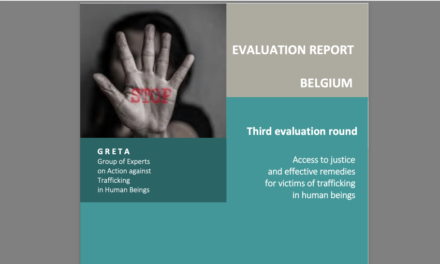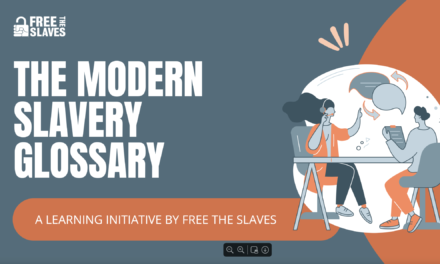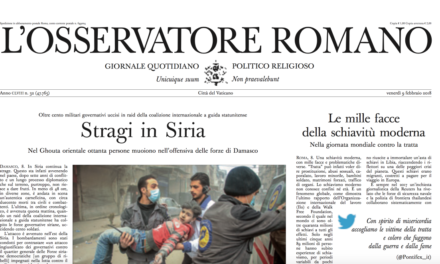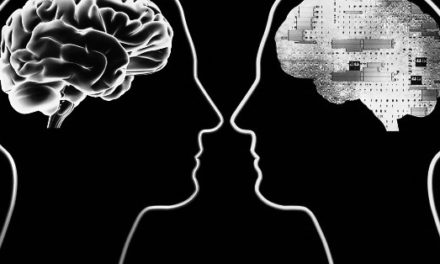L’universel selon les Anciens et les Modernes
Réflexions sur l’universalité des Droits de l’Homme
Note : you can find the English version of this text below.
Prof. Philibert Secretan
Qu’en est-il de l’universalité des Droits de l’homme ?
La « catholicité » prise en son sens premier.
Pour une tradition créatrice.
Les Anciens.
La querelle des universaux est un moment classique de la scolastique médiévale, qui nécessairement fait référence à la tradition grecque. Querelle signifie ici : désaccord sur la question de savoir si « Homme » en général, pris universellement, est une Idée subsistante (Platon) ou un concept formé par l’intellect capable d’abstraction et de généralisation (Aristote), ou simplement un terme, un mot, soit une position qui d’une certaine façon remonte au stoïcisme. Idéalisme, conceptualisme et nominalisme se sont ainsi partagé les réponses possibles à la question des Universaux.
Lorsqu’il est question d’êtres : l’Homme, les hommes ou tel homme, on voit que les positions, loin de s’exclure, se complètent. Il est vrai que l’Humanité est d’une certaine manière une Idée, que les hommes en général sont un concept, et que la réalité de l’homme est donnée avec chaque individu particulier.
Mais qu’en est-il lorsqu’est-il, lorsqu’il ne s’agit plus d’êtres, mais de valeurs et de qualités ? qu’en est-il du Bien ? Existe-t-il en soi, ou n’y a‑t-il que des choses généralement bonnes à manger, bonnes pour la santé, bonnes à faire, à ramasser dans le concept du bonum,du bien. Ou encore : chacun a‑t-il son bien à lui, et « le bien en général » n’est-il qu’un mot à la fois utile et trompeur ?
Lorsque Wittgenstein affirme que le monde se limite à ce que je puis en dire,le nominalisme touche à son comble. Lorsqu’on fait de la Démocratie un absolu (hors de la démocratie, pas de salut) on est en plein idéalisme. Le réalisme peut toucher au cynisme lorsqu’il est déconnecté d’un universalisme qui se réfère tant à l’univers géographique et historique qu’à l’originalité des divers peuples qui habitent la terre.
*
L’universel subit-il une même triangulation en Idée, concept et nom ? « Universel » peut avoir de sens idéal ou conceptuel, mais ne peut s’appliquer sans contradiction au particulier. Il semble donc préférable de distinguer entre l’universel « abstrait » et l’universel « concret ».
Est abstraitement universel ce qui vaut idéalement et en principe pour tous, ou qui vaut pour tous et qui s’impose à tous. Est concrètement universel ce qui est effectivement le cas pour tous, dans l’espace du monde et dans le temps de l’histoire. L’universel ne se confond donc pas avec une totalité actuellement nombrable capable de certains actes, comme le serait le suffrage universel ; ni au fait de la généralité, par exemple la sexualité de tous les « animaux »
là encore, une analyse plus fine montrerait l’écart en la généralité comme totalité hors exception, et une généralité comme ensemble de faits liés au genre.
Qu’en est-il de l’universalité des Droits de l’homme ?
Commençons par dénoncer une confusion constante et grave. Ce dont il est question se divise en deux problèmes :
- a) L’universalité de la déclaration des Droits de l’homme et b) l’universalité des droits proclamés.
En quel sens s’agit.il d’une déclaration « universelle ». Au sens où elle émane d’une source de droit — une République — qui, prenant elle-même sa source dans une Raison déployée en un « ordre universel » (en oikumènè disaient les stoïciens), s’attribue une validité et une compétence universelle. On passé d’une République particulière à une Organisation qui se dit et se veut universelle, et ainsi du Citoyen à l’Homme. On a passé de la Déclaration universelle d’abord une Assemblée nationale puis des Nations-Unies — qui ont vocation à « figurer » une République universelle. Mais cette universalité de principe de la Déclaration se répercute-t-elle sur les droits de l’homme ?
« Proclamation universelle » dit en substance que les droits de l’homme doivent être reconnus et respectés par tous, États et Individus. Mais la proclamation a beau être universelle, elle n’équivaut jamais à une institution de ces Droits. Les droits de l’homme sont des droits naturels, des droits relatifs à l’humanité de l’homme. Mais en quel sens sont-ce des droits ?
*
Il ne suffit pas de dire que ce sont des droits innés et non pas créés ; qu’ils demandent à être inconditionnellement reconnuspour qu’une communauté humaine se crée et prenne conscience des conditions de sa durée.
Or, il faut bien voir que si la reconnaissance est constitutive de la communauté, c’est que chacun est reconnu comme ayant besoin d’être protégé de l’autre. Homo homini lupus. C’est de cet état de nature — de seconde nature, dirait Pascal — qu’est né le droit naturel, et c’est cette reconnaissance protectrice qui peut et doit être codifiée pour que naisse un droit issu d’un effectif état de nature. Il sera codifié par la coutume, puis précisément par le législateur.
Durable dans sa tradition ou codifié au sens strict du terme, le droit naturel est d’abord un réseau universel de protections qui relèvent d’un droit d’être avant que l’on parle d’un droit de faire.Pour aborder les droits de l’homme comme tels, il faut donc abandonner l’image de citoyen du monde ; il faut passer de la reconnaissance des droits au droit comme reconnaissance ; il faut enfin passer par l’idée du droit protecteur pour progresser vers l’idée d’une dimension spirituelle de l’universalité, soit une forme première de la « catholicité » sans doute réassociée à l’oikumènè des stoïciens.
La « catholicité » prise en son sens premier.
Kata holon, à travers tout : voilà qui fait référence au souffle de l’esprit. Ce « souffle », je le retrouve dans le terme « inspiration ». Il n’y a d’humanité que là où souffle un même esprit, et on peut dire que les « droits de l’homme » ou le fameux « droit d’être un homme » (Jeanne Hersch), ne seront effectivement universels que lorsqu’ils seront proclamés par toutes les religions en tant que mandataires de l’Esprit.
Les États sont des œuvres de la raison, et la raison seule retombera toujours sur la tripartition qui anime et structure la querelle des universaux : l’idée d’une unique Totalité englobante ; le concept du Citoyen pensé en dehors des particularités régionales et individuelles ; l’homme sublimé dans sa particularité singulière, à la limite anarchiste. En revanche, cette « catholicité » va respecter ces trois aspects de l’homme sans les opposer dans divers systèmes de pensée. C’est ainsi qu’Aristote, en préconisant un État simultanément monarchique dans son autorité, aristocratique dans son administration, et démocratique dans son application, songe à ce que peut être une politique inspirée. Là dirons-nous les droits de l’homme sont réellement respectables.
La Déclaration des droits de l’homme ne peut que solenniser la reconnaissance de l’existence des droits de l’homme ; elle n’a rien institué, mais elle a concrètement favorisé la création de conditions matérielles et morales, nécessaires et insuffisantes, pour que des droits, inconnus faute de moyen pour les exercer, soient révélés. Telle est la noblesse de l’humanitaire qui s’est organisé dans le sillage de la Déclaration des Droits de l’homme, mais qui puise ses forces ailleurs.
Pour une tradition créatrice.
L’universel n’est ni l’Un qui nie l’Autre, ni le tout qui sacrifie le particulier : c’est l’unus versus alia, et c’est ce versus qui sou tend une théorie et une pratique des droits reconnus et des devoirs assumés.
L’universel est tout ensemble trois choses : l’unique d’une même archè et d’un même télos, un concept qui permet d’assigner un temps et un espace à une catégorie d’être, ce qui permet à l’individu d’à la fois s’isoler et ne pas se prendre pour seul de son espèce.
L’universalité des droits doit être un universel concret et non pas un universel abstrait. Ce n’est que dans la concrétude du temps et de l’espace que ce droit peut avoir une validité appelée universelle. Non pas par ce qu’il sera impérativement appliqué partout et en tout temps, mais par ce que dans l’espace du monde et dans le temps de l’histoire des hommes, des femmes réunies en communautés croyantes et agissantes auront appris qu’ils, qu’elles ont droit à la santé, droit à l’éducation, droit au droit. Or c’est ici que la Tradition joue un rôle capital.
L’accession à ce « savoir » n’est pas affaire de Science et de Progrès, mais de respect des « traditions » en tant que modalités universelles et concrètes de la transmission des recettes de santé, de méthodes d’éducation, d’habituation au droit : aux droits et aux devoirs.
Le Progrès relève de l’universel abstrait, les traditions relèvent de l’universel concret et de conquêtes exemplaires, alors qu’on en a fait le refuge des passés révolus. Le respect des droits de l’homme passe par le respect des traditions vivantes, à la fois porteuses de mémoire et boussoles irremplaçables.
Hélas, il est pratiquement impossible aujourd’hui de parler de tradition sans créer querelles et incompréhensions. On le sait : le traitement traditionnel de la femme en Orient, pour ne prendre que cet exemple flagrant, est trop souvent ignoble et traditionnel. L’excision des filles est ignoble et traditionnelle et n’a rien de commun avec la circoncision juive. On ne saurait l’invoquer, ni quelque « révélation » que ce soit pour contester le droit de la femme de se penser toujours comme un sujet et jamais comme un objet. Ce principe humaniste, bien que formulé par Kant, philosophe européen, écrivant dans une langue particulière, n’en a pas moins une validité universelle. D’autre part, la traditionnelle hospitalité orientale n’est-elle pas la traduction locale d’un principe plus universel d’amitié protectrice ?
********
Le soubassement religieux de cet état de choses en Orient est évident. Mais est-il déterminant ? C’est devant cette interrogation qu’il est urgent que toutes les religions retrouvent ensemble le souffle de l’inspiration purificatrice des traditions corrompues, pour ainsi assurer aux Droits de l’Homme leur assise et pour en rattacher la déclaration à un Humanisme universel, œcuménique : au service de l’Homme — homme et femme — et à la gloire de Dieu.
THE UNIVERSAL ACCORDING TO ANCIENT AND MODERN
REFLECTIONS ON THE UNIVERSALITY OF HUMAN RIGHTS
Prof. Philibert Secretan
The Ancients.
What about the universality of human rights?
Catholicity” in its first sense.
For a creative tradition.
THE OLD ONES.
The universal quarrel is a classic moment in medieval scholasticism, which necessarily refers to the Greek tradition. Quarrel here means: disagreement on the question of whether “Man” in general, taken universally, is a remaining Idea (Plato) or a concept formed by the intellect capable of abstraction and generalization (Aristotle), or simply a term, a word, or a position that in some way dates back to stoicism. Idealism, conceptualism and nominalism thus shared the possible answers to the question of the Universe.
When it comes to beings: Man, men or such a man, we see that the positions, far from excluding each other, complement each other. It is true that Humanity is in a way an Idea, that men in general are a concept, and that the reality of man is given with each particular individual.
But what about when it is no longer a question of beings, but of values and qualities? what about the Good? Is there in itself, or are there only things that are generally good to eat, good for your health, good to do, good to pick up in the concept of the bonum, the good. Or again: does everyone have their own property, and is “the good in general” only a useful and misleading word?
When Wittgenstein says that the world is limited to what I can say, nominalism is at its height. When we make Democracy an absolute (out of democracy, no salvation) we are in full idealism. Realism can touch cynicism when it is disconnected from a universalism that refers both to the geographical and historical universe and to the originality of the various peoples who inhabit the earth.
*
Does the universal undergo the same triangulation in Idea, concept and name?” Universal” may have an ideal or conceptual meaning, but cannot be applied without contradiction to the individual. It therefore seems preferable to distinguish between the “abstract” and the “concrete” universal.
Abstractly universal is what is ideally and in principle valid for all, or valid for all and binding on all. What is actually universal is what is actually the case for everyone, in the space of the world and in the time of history. The universal is therefore not confused with a currently numberable totality capable of certain acts, as would universal suffrage; nor with the knowledge of generality, for example the sexuality of all “animals”.
here again, a more detailed analysis would show the gap in generality as a totality without exception, and a generality as a set of gender-related facts.
WHAT ABOUT THE UNIVERSALITY OF HUMAN RIGHTS?
Let us begin by denouncing a constant and serious confusion. What we are talking about is divided into two problems:
(a) The universality of the Declaration of Human Rights and (b) the universality of the rights proclaimed.
In what sense is it a “universal” declaration? In the sense that it emanates from a source of law — a Republic — which, itself taking its source in a Reason deployed in a “universal order” (in oikumènè said the Stoics), attributes itself a universal validity and competence. We have gone from a particular Republic to an Organization that says it is and wants to be universal, and thus from the Citizen to Man. The Universal Declaration was transformed first into a National Assembly and then into the United Nations — which is intended to “represent” a universal Republic. But does this universality of principle of the Declaration have an impact on human rights?
“Universal proclamation” essentially means that human rights must be recognized and respected by all, States and individuals. But even though the proclamation is universal, it never amounts to an institution of these Rights. Human rights are natural rights, rights relating to the humanity of mankind. But in what sense are they rights?
*
It is not enough to say that they are innate rights and not created; that they require unconditional recognition for a human community to be created and become aware of the conditions of its duration.
However, it must be recognized that if recognition is constitutive of the community, it is because each one is recognized as needing to be protected from the other. Homo homini lupus. It is from this state of nature — of second nature, Pascal would say — that natural law was born, and it is this protective recognition that can and must be codified in order for a right to be born from an effective state of nature. It will be codified by custom and then precisely by the legislator.
Sustainable in its tradition or codified in the strict sense of the term, natural law is first and foremost a universal network of protections that are part of a right to be before we talk about a right to do.To approach human rights as such, it is therefore necessary to abandon the image of the world citizen; it is necessary to move from the recognition of rights to the law as recognition; it is finally necessary to move towards the idea of protective law to progress towards the idea of a spiritual dimension of universality, that is, a first form of “catholicity” undoubtedly re-associated with the oikumene of the Stoics.
THE “CATHOLICITY” TAKEN IN ITS FIRST SENSE.
Kata holon, through everything: this refers to the breath of the spirit. This “breath” I find in the term “inspiration”. There is no humanity except where the same spirit blows, and it can be said that “human rights” or the famous “right to be a man” (Jeanne Hersch), will only be effectively universal when they are proclaimed by all religions as representatives of the Spirit.
States are works of reason, and reason alone will always fall back on the tripartition that animates and structures the quarrel of universals: the idea of a single All-inclusive; the concept of the Citizen thought outside the regional and individual particularities; the man sublimated in his singular particularity, at the anarchist limit. On the other hand, this “catholicity” will respect these three aspects of man without opposing them in different systems of thought. Thus, Aristotle, in advocating a state that is simultaneously monarchical in its authority, aristocratic in its administration, and democratic in its application, is thinking about what an inspired policy can be. There, let us say, human rights are really respectable.
The Declaration of Human Rights can only solemnize the recognition of the existence of human rights; it has not instituted anything, but it has concretely promoted the creation of material and moral conditions, necessary and insufficient, so that rights, unknown for lack of means to exercise them, can be revealed. This is the nobility of the humanitarian sector, which has been organised in the wake of the Declaration of Human Rights, but which draws its strength from elsewhere.
FOR A CREATIVE TRADITION.
The universal is neither the One who denies the Other, nor the whole who sacrifices the particular: it is the unus versus alia, and it is this versus the one that underlies a theory and practice of recognized rights and duties assumed.
The universal is all together three things: the unique of the same arch and the same telos, a concept that makes it possible to assign time and space to a category of being, which allows the individual to both isolate himself and not take himself as alone of his species.
The universality of rights must be a concrete universal and not an abstract universal. It is only in the concreteness of time and space that this right can have a validity called universal. Not because it will be imperatively applied everywhere and at all times, but because in the space of the world and in the time of men’s history, women gathered in believing and acting communities will have learned that they, that they have the right to health, the right to education, the right to law. However, it is here that Tradition plays a crucial role.
Access to this “knowledge” is not a matter of Science and Progress, but of respect for “traditions” as universal and concrete modalities for the transmission of health recipes, methods of education, habituation to the right: to rights and duties.
Progress is about the abstract universal, traditions are about the concrete universal and exemplary conquests, whereas they have been made the refuge of the past. Respect for human rights requires respect for living traditions, which are both carriers of memory and irreplaceable compasses.
Unfortunately, it is almost impossible today to talk about tradition without creating quarrels and misunderstandings. We know that the traditional treatment of women in the East, to take just this obvious example, is too often despicable and traditional. Female circumcision is despicable and traditional and has nothing in common with Jewish circumcision. It cannot be invoked, nor any “revelation” whatsoever, to challenge women’s right to think of themselves always as subjects and never as objects. This humanist principle, although formulated by Kant, a European philosopher, writing in a particular language, has universal validity. On the other hand, isn’t traditional Eastern hospitality the local translation of a more universal principle of protective friendship?
*************
The religious foundation of this state of affairs in the East is obvious. But is it decisive? It is in the face of this question that it is urgent that all religions together recover the breath of the purifying inspiration of corrupt traditions, thus ensuring that Human Rights are firmly rooted in them and linking their declaration to a universal, ecumenical Humanism: in the service of Man — man and woman — and to the glory of God.
























